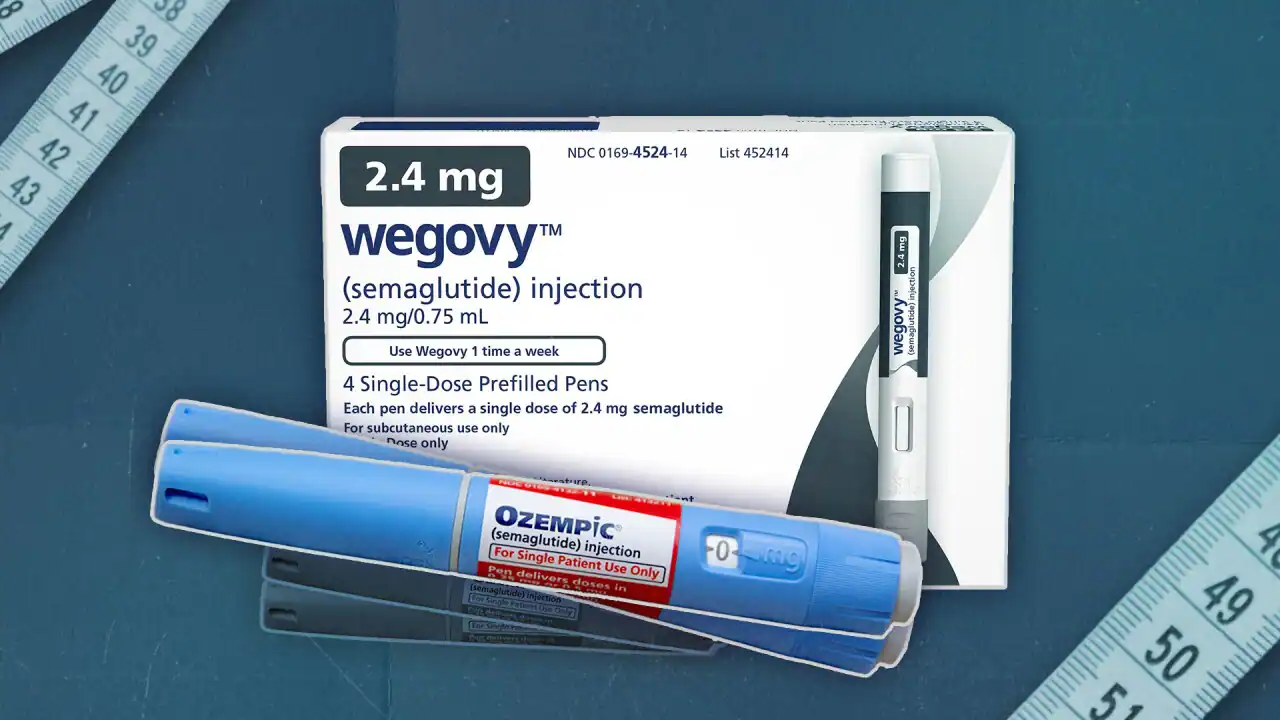Amid Demands for Weight Loss: Is Ozempic Injection a Great Danger or a Quick Solution?

Ozempic, a diabetes medication, has been dominating online platforms and capturing the attention of countless individuals for its additional properties in losing weight. This phenomenon has been fueled by celebrity endorsements and the extraordinary testimonials shared by TikTok influencers.
Videos under the hashtag #Ozempic have hundreds of millions of views on TikTok, with many users regularly telling followers about the drug’s effectiveness in weight loss.
As reported by The Cut, Ozempic really took off when celebrities like Elon Musk and Chelsea Handler said they used the substance.
However, its popularity has led to a global shortage, with diabetics recently struggling to find Ozempic. The drug was cut off from the market due to the rush to buy it by those wishing to lose weight.
Although Ozempic leads to weight loss, it has not yet been approved by the U.S. Food and Drug Administration (FDA) for weight loss.
In addition, after reports of this drug being associated with making patients think about suicide or harming themselves, the Medicines and Healthcare products Regulatory Authority (MHRA) announced a review of the side effects of it and of a group of drugs produced by the Danish manufacturer (Novo Nordisk).
A Miracle Drug
Diabetes has always been associated with obesity, with about 13% of people suffering from obesity and about 9.3% suffering from diabetes.
Weight loss is one of the most important pillars of diabetes treatment, especially with the second type, hence the need for Ozempic injections, as it works to treat diabetes and slim the person at the same time.
Ozempic, the brand name for Semaglutide, is primarily used to regulate blood sugar levels in adults with type 2 diabetes by enhancing pancreatic production of insulin, suppressing appetite, and promoting feelings of fullness.
Doctors have found that patients who use Ozempic injections in high doses lose some of their weight, as it slows the transition of food from the stomach to the intestines, and reduces the speed of absorption of digested food inside the intestines, which gives the patient a feeling of fullness for a longer period and reduces his appetite. So doctors began prescribing Ozempic injections to lose weight.
In 2018, a double-blind placebo study published in The Lancet Diabetes & Endocrinology found the drug helped people lose between 6% and 13.6% of their body mass, on average.
Since then, Novo Nordisk has created a higher-dose semaglutide drug known as Wegovy that aims to treat obesity and was approved for use in the U.S. in 2021, as well as in Europe and the UK last year.
While Wegovy is still not available with a typical prescription in the UK, France, or a few other nations, Ozempic is.
Earlier this year, a study revealed that weekly injections for 16 months can lead to an average of 15% weight loss if combined with a balanced diet and exercise.
In contrast, another study indicated that completely stopping Ozempic would likely lead to regaining most of the weight lost within several months.

Dangerous Trend
Ozempic first received media attention in February 2021 when the drug was featured on The Dr. Oz Show in a segment called Could a Diabetes Drug Cure Obesity?.
An article in Variety claimed that Ozempic is the worst-kept secret in Hollywood.
According to a November 2022 article published in The Lancet Diabetes and Endocrinology, videos on TikTok about drugs like Ozempic have garnered millions of views.
This speculation has led to the drug’s popularity on TikTok as a miracle drug for weight loss.
The #Ozempic hashtag currently has over 1.2 billion views, and TikTok users have been documenting their transformations using the hashtag #OzempicJourney.
Elon Musk, Khloe Kardashian, Kyle Richards, and Chelsea Handler, celebrities have talked about Ozempic, and some have even admitted to using it.
“I started taking Ozempic 6 weeks ago,” an American TikTok user said with nearly 100,000 views.
“I didn’t do any exercise, I just injected myself with this product,” added the young woman, who appeared in her sportswear much thinner than in her previous photos.
“Losing 40 kilograms in less than three months is possible thanks to Ozempic. It’s a miracle,” a French TikToker said with nearly 50,000 views.
Despite costing nearly $1,000 per month and not being officially approved for weight loss, Ozempic has become so in demand that it has caused diabetes drug shortages in several countries.
Authorities in the UK and Australia have also issued warnings to doctors, celebrities, and influencers who promote these drugs online.
Excessive use of a diabetes drug brings back memories of the Mediator scandal in France.
The drug was widely prescribed as an appetite suppressant and for weight loss until it was linked to fatal heart problems and was pulled from the French market in 2009.
Warning Over Ozempic
Despite its widespread popularity recently, doctors warned against using Ozempic injections for diabetics, which give quick results in losing weight.
A CNN report stated that the use of these injections for slimming increases the chances of stomach paralysis, noting that the FDA has received similar reports from some patients.
The report added that these patients received Ozempic or Wegovy injections for weight loss.
Last June, the American Society of Anesthesiologists warned that patients should stop these medications a week before surgery because they can increase the risk that people will regurgitate food during an operation, even if they’ve fasted as directed.
“There have not been these types of robust studies, and so the whole idea that this class of medications actually delays gastric emptying is not as well recognized,” said Michael Camilleri, gastroenterology consultant at the Mayo Clinic.
While other doctors also expressed concern about the side effects of semaglutide, such as: drug allergy, low blood sugar, pancreatitis, intestinal obstruction, retinopathy, kidney failure, and thyroid cancer.
In addition to secondary problems, most notably sagging skin resulting from rapid weight loss in a way that does not allow the skin to shrink gradually.
Those who have lost weight also notice that wrinkles appear on their face and that they look older. This has been dubbed the Ozempic face, which refers to sagging and aging of the facial skin.
The U.S. National Library of Medicine said that laboratory animals who were given semaglutide developed tumors of the thyroid gland, but it is not known if this medication increases the risk of tumors in humans.

On the other hand, there have been other reports of Ozempic injections being related to making patients think about suicide or harming themselves.
On July 12, the MHRA announced a review of the side effects of it and of a group of drugs produced by Novo Nordisk known as GLP-1 receptor agonists.
The European Medicines Agency (EMA) said earlier this month it had begun investigating GLP-1 drugs after Iceland’s health regulator flagged three cases of patients thinking about suicide or self-harm.
Novo Nordisk confirmed that it had received a request on July 24 from the MHRA, to confirm the association of semaglutide—which is the active substance in injection—with self-harm or attempted suicide, noting that it would issue the results of the review as soon as possible.
It is noteworthy that the MHRA has approved the use of semaglutide for weight loss in 2021 under the trade name Wegovy, but Novo Nordisk has not yet launched it in the British market because it prioritizes its supplies in the United States.
Novo Nordisk does not officially promote the use of the drug for off-label purposes, but the drug has brought in major sales.
The company’s operating profits have increased 58% since beginning to sell the drug in 2017, according to The Cut.
This spike in attention is filling the pockets of Novo Nordisk, which pocketed $3.4 billion in 2020 alone, and is projected to make $7.8 billion in 2023, particularly as the use of Ozempic in the UK soars.
Sources
- Exclusive: UK probes Novo's Ozempic, weight-loss drug Saxenda over suicidal, self-harming thoughts
- Ozempic: How a TikTok weight loss trend caused a global diabetes drug shortage - and health concerns
- Efficacy and safety of semaglutide [Study]
- A diabetes drug has become an off-label appetite suppressant
- Why TikTok is Talking About Weight Loss Drug Ozempic
- Semaglutide for weight loss and cardiometabolic risk reduction in overweight/obesity [Study]
- Once-Weekly Semaglutide in Adults with Overweight or Obesity [Study]
- They took blockbuster drugs for weight loss and diabetes. Now their stomachs are paralyzed









